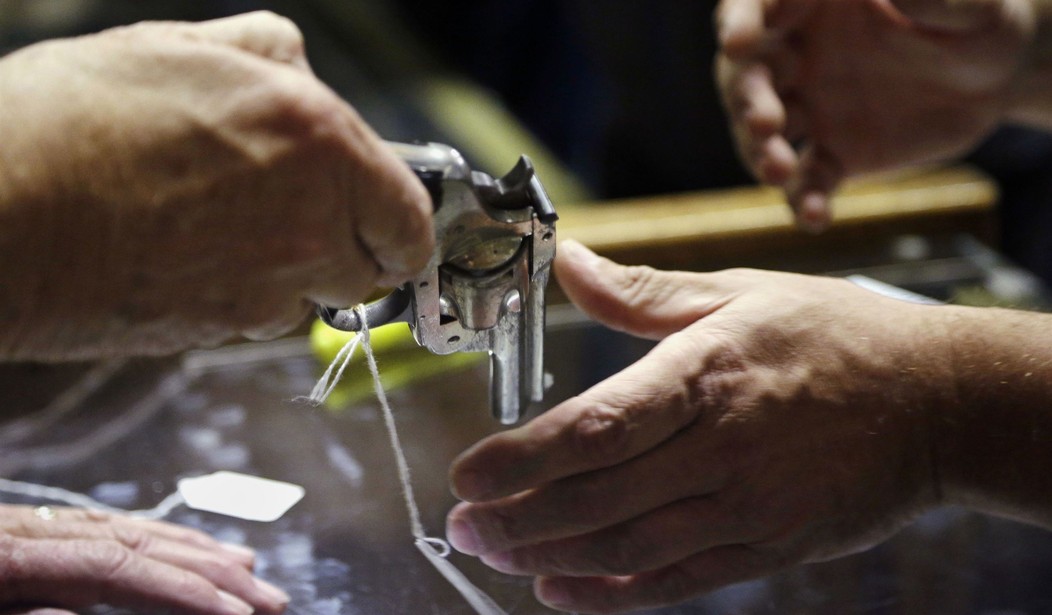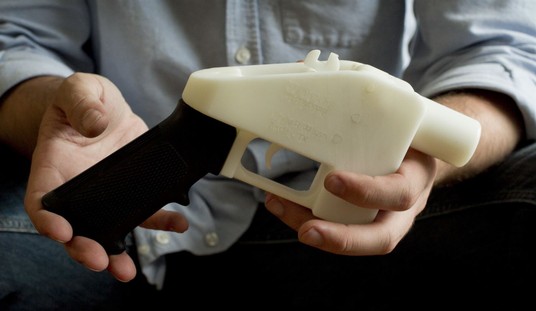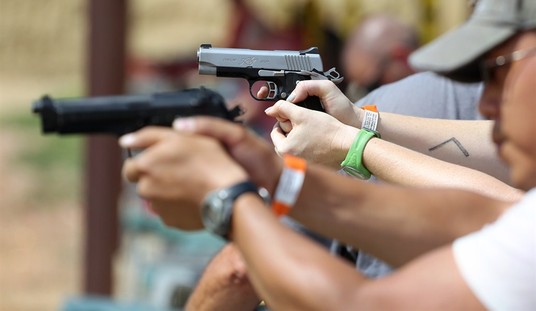Staw buys are a problem. They put guns into the hands of criminals. It’s one of those things that we should all be able to get behind. Unfortunately, what happens when a law seeking to ban straw buys actually goes too far?
See, that’s the takeaway I got from a recent story out of Colorado.
Colorado’s straw gun purchaser ban not only applies to people who buy firearms for someone who isn’t legally eligible to own or possess one, but also to anyone who shares guns with them, the Colorado Court of Appeals ruled Thursday.
The law, approved by the Colorado Legislature in 2000 by a bipartisan group of lawmakers in response to the shooting at Columbine High School in Littleton a year earlier, makes it a Class 4 felony to purchase a firearm, and then give or transfer it to someone who cannot legally own a weapon, such as a convicted felon.
Doing so is punishable by up to 6 years in prison and a $500,000 fine.
In a 2018 case out of Adams County, a woman was convicted for purchasing a firearm that her common-law husband, a convicted felon, could access.
In an appeal of that conviction, a three-judge panel of the appeals court ruled in a precedent-setting opinion Thursday that’s the same as transferring a firearm to an ineligible person even if it isn’t a permanent transaction.
Not a big deal, right?
I mean, loaning a gun to someone who is ineligible is clearly little different than just buying or giving them a firearm, right?
But, things get a bit more complicated. See, the woman in question purchased the guns and her common-law husband could access them. It never says there’s a requirement that he had to have actually done so.
As a result of that reasoning–and this is a precedence-setting case in Colorado–could well end up causing any number of law-abiding citizens to have to give up their own guns.
Yes, the subject revolves around access. The problem is that access can be a lot trickier than one might think.
Sure, we all agree that a gun stored in a closet or nightstand is accessible, but what about in a gun safe? If the resident felon didn’t have the combination or key, no problem, right? What if the prosecutors decide not to take your word for it?
Oh, the chances are good a jury would acquit you, but who wants to deal with a criminal trial?
That would mean tons of Coloradoans might potentially be forced to either get rid of their guns or store them at someone else’s house. That means they couldn’t easily use those guns to defend themselves.
“Excuse me? I know you’re trying to break into my house and all, but I need to run to my mom’s house to pick up my gun. Can you hold off for, like, a half-hour? Thanks!”
Yeah, that’s not going to happen.
Ascertaining just who has access to something is always going to be a problem. Overzealous prosecutors mean a law like this meant for one set of circumstances could well force numerous law-abiding citizens to either have to give up their guns or their partners.
And what about people who don’t realize their partner is a felon? I mean, back when I was dating, our criminal histories weren’t exactly first date material. It wasn’t a third through 100th date question, either. It’s not hard to think about someone who starts a relationship unaware of their new partner’s criminal record. Do they face prosecution, too?
Yeah, I know, you’re supposed to be innocent until proven guilty and all that, but we’ve all seen prosecutions where it really boiled down to going the other way. Even if you win, it’s a pain in the butt and could be expensive to boot if you don’t have a public defender–and no one wants a public defender if they can help it.
All in all, I fear this decision will cause more problems than it will solve.








Join the conversation as a VIP Member